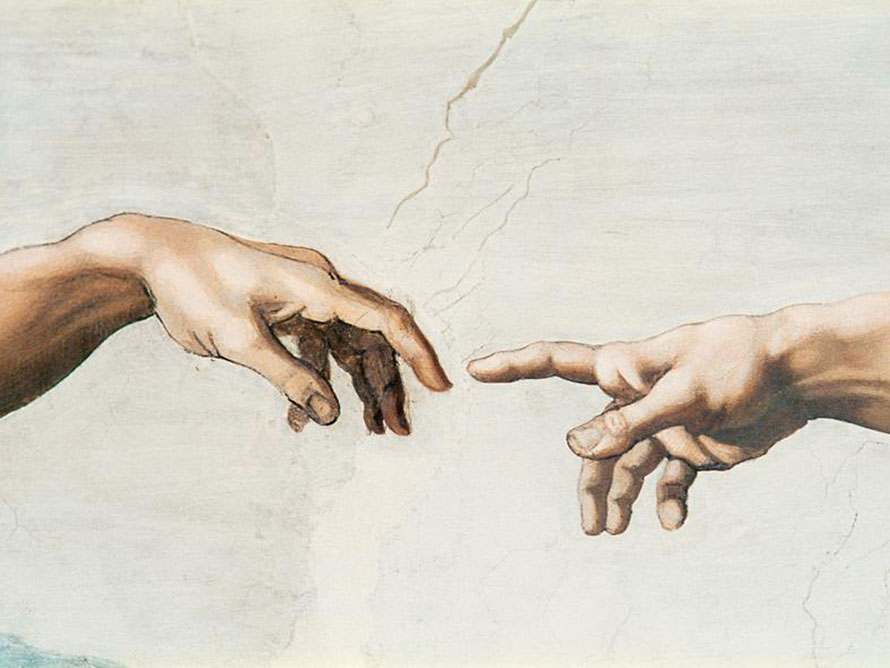Was God righter than we thought? In the Bible, God tells Adam he is made of dust. For centuries people thought it was a poetic metaphor. But modern science shows that it might be true.
Dust thou art and unto dust shalt thou return
 Michelangelo's masterpiece: The artwork on the Sistine Chapel ceiling shows the birth of the first man.
Michelangelo's masterpiece: The artwork on the Sistine Chapel ceiling shows the birth of the first man. Glossary
Adam - The name given in the Hebrew Bible and the Christian Old Testament to the first human.
Michelangelo - An Italian Renaissance sculptor, painter, architect and poet. He lived from 1475 to 1564.
Sistine Chapel - A room in the Vatican City whose ceiling is painted by the Renaissance artist Michelangelo.
Microscopic - So small that they can only be seen with a microscope.
Bacteria - A large group of single-cell microorganisms. Some cause disease in animals and humans.
Cremated - To burn a dead person's body, usually as part of a funeral ceremony.
Air pollution - The presence in the air of harmful or poisonous substances. Air pollution can cause many health problems.
